Postcard of the Douglas County Courthouse, Omaha, Nebraska. Approximate date early 1900’s.
Accredited public libraries are invited to submit a proposal for a 2017 Nebraska Library Commission Internship Grant. Apply now to receive up to $1,000 to fund a high school or college intern in 2017. The final deadline to submit your application is Wednesday, December 21, 2016 at 5:00 p.m. Interns bring a wealth of ideas and enthusiasm to Nebraska library services–and as you can see in this photo of the Atkinson Public Library’s 2016 intern, they are often invaluable as library programming assistants.
Details about the 2017 Nebraska Library Internship Grant Program are available at: https://nlc.nebraska.gov/nowhiring/Internship-grants.aspx For more information contact: JoAnn McManus, Grants Program Manager, 402-471-4870 or 800-307-2665.
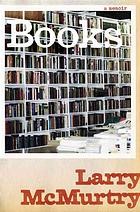 I’ve been a Larry McMurtry fan since reading Lonesome Dove (1986 Pulitzer Prize Winner in Fiction), the only book I recall reading twice. Most likely, I’ll read it again someday. Since then I’ve read many of McMurtry’s books: The Last Picture Show, Comanche Moon, Dead Man’s Walk, Streets of Laredo, and more. Well known as a prolific novelist, McMurtry also has credits as an Academy Award winning screenwriter (Terms of Endearment, Brokeback Mountain and The Last Picture Show to name some), and has added nonfiction writings including Walter Benjamin at the Dairy Queen – a wonderful autobiographical reflection on many things – and particularly those things from his home state Texas.
I’ve been a Larry McMurtry fan since reading Lonesome Dove (1986 Pulitzer Prize Winner in Fiction), the only book I recall reading twice. Most likely, I’ll read it again someday. Since then I’ve read many of McMurtry’s books: The Last Picture Show, Comanche Moon, Dead Man’s Walk, Streets of Laredo, and more. Well known as a prolific novelist, McMurtry also has credits as an Academy Award winning screenwriter (Terms of Endearment, Brokeback Mountain and The Last Picture Show to name some), and has added nonfiction writings including Walter Benjamin at the Dairy Queen – a wonderful autobiographical reflection on many things – and particularly those things from his home state Texas.
McMurtry self describes as a reader, writer, and bookseller. Add teacher, book scout, dealer, business owner to those descriptors. It is his passion for books, book scouting, and book dealing that many might not know of and that is the subject of Books: A Memoir. In Books, McMurtry reflects on his life-long affinity to all things books. The reader will discover that McMurtry knows books, really knows books – all kinds of books.
It’s curious that McMurtry tells of growing up in a house without books and musing that it is perhaps his discovery of books that led to his lifelong passion for them. The absence of books in his home ended when a relative gave him a box of nineteen books, a small batch that the young McMurtry read and re-read many times. When his family moved from their Texas ranch home to Archer City he had opportunities to explore many other books, including those in the local public library.
McMurtry’s book scouting, buying and selling happened in many places, emphasis on many. And those pursuits resulted in acquaintanceships with many book stores and book dealers – a good number colorfully described in Books. I took special notice when he mentions searching, in San Francisco, for a Weldon Kees’ book, and for Wright Morris’s The Home Place.
McMurtry estimates he’s handled over a million books during his lifetime. His own collection, at the time his book was published, numbered nearly 30,000, including a few thousand reference titles.
For over 30 years McMurtry co-owned, with long-time partner Marcia Carter, the legendary Booked Up book store in Georgetown (Washington DC). Booked Up was moved in the mid ‘90s to McMurtry’s Texas hometown in Archer City, eventually growing to several stores housing some 450,000 books (a true book town somewhat on the order of the notable Welsh village of Hay-on-Wye). Sadly, several years ago, McMurtry sold many of the books in these stores – described by McMurtry as “The Last Book Sale.” Fortunately, it wasn’t and he kept Booked Up No. 1, the original store.
For those who love books and fine writing, McMurtry’s Books will be an enjoyable read. And for those who enjoy book stores there is a great adventure ahead in traveling to Archer City, Texas, to visit McMurtry’s remaining store.
McMurtry, Larry. Books: A Memoir. New York: Simon & Schuster, 2008. Print.
Postcard of Scotts Bluff National Monument located in Scotts Bluff County in Nebraska, approximately early 1900’s.
 Date: November 8, 2016
Date: November 8, 2016
Time : 3:00-4:00 EST, 2:00-3:00 CST
With longer life expectancy and increasing diversity, older adults are reinventing aging and changing perceptions of their demographic. It’s time to rethink how our libraries serve this important and growing segment of our patron base. This webinar will focus on trends and impacts of the aging population, and will share creative strategies for library staff to meet the evolving needs of older adults in a changing world.
King County Library System was recently recognized by Urban Libraries Council as a 2016 Top Innovator for their work with older adults. Congratulations!
Presented by: Wendy Pender, Older Adults Project Specialist, King County Library System (WA)

Join us for next week’s NCompass Live, “Organizing a Successful Comic/Maker Con at Your Library”, on Wednesday, Oct. 26, 10:00-11:00 am Central Time.
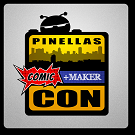 Comic Cons are organized conventions for fans of comic books, anime, manga, science fiction, cosplay, and more. Maker Cons showcase the maker movement to include 3D printers, robotics, virtual reality, drones, and other emerging technologies that creative people use as tools to innovate. The first annual Mid-Pinellas Comic and Maker Con was organized in less than 6 weeks and with very little money. This event had 3,500 people attend, which was second only to a visit to the St. Petersburg College Seminole campus by President Barack Obama in September 2012! The second year, even with a name change to Pinellas Comic and Maker Con, attendance went up to over 4,000 participants! And, the third year over 5,000! Learn the ins-and-outs including legal, sponsorship, security issues, and much more of organizing a Comic and Maker Con to help highlight your library’s unique collections/services and to have a lot of fun doing it!
Comic Cons are organized conventions for fans of comic books, anime, manga, science fiction, cosplay, and more. Maker Cons showcase the maker movement to include 3D printers, robotics, virtual reality, drones, and other emerging technologies that creative people use as tools to innovate. The first annual Mid-Pinellas Comic and Maker Con was organized in less than 6 weeks and with very little money. This event had 3,500 people attend, which was second only to a visit to the St. Petersburg College Seminole campus by President Barack Obama in September 2012! The second year, even with a name change to Pinellas Comic and Maker Con, attendance went up to over 4,000 participants! And, the third year over 5,000! Learn the ins-and-outs including legal, sponsorship, security issues, and much more of organizing a Comic and Maker Con to help highlight your library’s unique collections/services and to have a lot of fun doing it!
Presenter: Chad Mairn is a librarian, teacher, author, and self-described geek who frequently shares his enthusiasm for ‘all-things technology’ as a speaker at library and technology conferences. He is an Information Services Librarian, Assistant Professor, and manages the Innovation Lab at St. Petersburg College (FL).
Upcoming NCompass Live events:
For more information, to register for NCompass Live, or to listen to recordings of past events, go to the NCompass Live webpage.
NCompass Live is broadcast live every Wednesday from 10am – 11am Central Time. Convert to your time zone on the Official U.S. Time website. The show is presented online using the GoToWebinar online meeting service. Before you attend a session, please see the NLC Online Sessions webpage for detailed information about GoToWebinar, including system requirements, firewall permissions, and equipment requirements for computer speakers and microphones.
“E-rate: What’s New for 2017?” has been scheduled in locations across the state and online.
What is E-rate? How can my library benefit from E-rate? How do I apply for E-rate?
E-rate is a federal program that provides discounts to schools and libraries on Telecommunications, Internet access, and Internal Connections costs in order to make these services more affordable. There have been some big changes to E-rate since USAC launched the E-Rate Productivity Center(EPC) last year. This new online portal is the main point of entry for all future E-rate interactions. With your organizational account you can now use EPC to file forms, track your application status, communicate with USAC, and more.
What does your library need to know to use this new E-rate portal? In this workshop, Christa (Burns) Porter, Nebraska’s State E-rate Coordinator for Public Libraries, will first cover the basics of the E-rate program and then show you how to access and use your account in EPC to submit your Funding Year 2017 E-rate application.
Dates and locations:
To register for any of these sessions, go to the Nebraska Library Commission’s Training & Events Calendar and search for ‘e-rate 2017’.
FOR IMMEDIATE RELEASE: 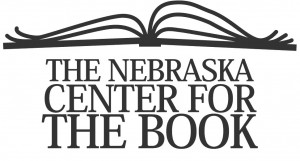
October 18, 2016
FOR MORE INFORMATION:
Mary Jo Ryan
402-471-3434
800-307-2665
Readers are invited to hear presentations by winning Nebraska writers and book designers at the Nebraska Center for the Book’s October 29 Celebration of Nebraska Books in downtown Lincoln. Presenters will include the following 2016 Nebraska Book Award Winners:
Designers: N. Putens, Rodeo Nebraska.
Fiction Writer: Chigozie Obioma, The Fishermen: A Novel.
Illustrator: Justin T. Sipiorski, The Fishes of Nebraska.
Non-fiction Writers: James W. Hewitt, In Cold Storage: Sex and Murder on the Plains; Summer Miller, New Prairie Kitchen: Stories and Seasonal Recipes from Chefs, Farmers, and Artisans of the Great Plains; Nancy Plain, This Strange Wilderness: The Life and Art of John James Audubon; and Robert A. Hrabik, Steven C. Schainost, Richard H. Stasiak, Edward J. Peters, The Fishes of Nebraska.
Photographer/Writer: Mark Harris, Rodeo Nebraska.
Poets: Lin Brummels, Hard Times, and Charles Peek, Breezes on Their Way to Being Winds.
The celebration, free and open to the public, will also feature presentation of the Nebraska Center for the Book’s 2016 Jane Geske Awards to City Impact (Lincoln), Literacy Center for the Midlands (Omaha), and Platte Valley Literacy Association (Columbus) Community Reading Program for exceptional contributions to literacy in Nebraska. The Nebraska Center for the Book will also present the 2016 Mildred Bennett Awards to Nebraska poets Twyla Hansen and Marjorie Saiser at the Celebration. Hansen and Saiser will be honored for their contributions to Nebraska writing and for their service in support of Nebraska’s writers and readers.
This year the Celebration marks the twelfth year of One Book One Nebraska with a program by Karen Gettert Shoemaker, author of The Meaning of Names, the 2016 One Book One Nebraska book selection
The Nebraska Center for the Book Annual Meeting will be held at 1:30 p.m.—just prior to the 2:30-6:30 p.m. Celebration. An awards reception honoring the winning authors, book signings, and announcement of the 2017 One Book One Nebraska book choice will conclude the festivities. The Celebration of Nebraska Books is sponsored by Nebraska Center for the Book, Nebraska Library Commission, Nebraska State Historical Society’s Nebraska History Museum, and University of Nebraska Press—with support for the One Book One Nebraska presentation from Humanities Nebraska. Celebration information is available at http://centerforthebook.nebraska.gov/programs/celebration.html.
The Nebraska Center for the Book is housed at the Nebraska Library Commission and brings together the state’s readers, writers, booksellers, librarians, publishers, printers, educators, and scholars to build the community of the book, supporting programs to celebrate and stimulate public interest in books, reading, and the written word. The Nebraska Center for the Book is supported by the Nebraska Library Commission.
As the state library agency, the Nebraska Library Commission is an advocate for the library and information needs of all Nebraskans. The mission of the Library Commission is statewide promotion, development, and coordination of library and information services, bringing together people and information.
###
The most up-to-date news releases from the Nebraska Library Commission are always available on the Library Commission Website, http://nlc.nebraska.gov/publications/newsreleases.
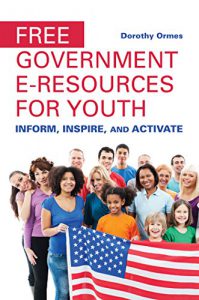 We have a new book in our collection here at the Nebraska Library Commission: Free Government e-Resources for Youth, by Dorothy Ormes. 146 p. Z688.G6 O76 2016
We have a new book in our collection here at the Nebraska Library Commission: Free Government e-Resources for Youth, by Dorothy Ormes. 146 p. Z688.G6 O76 2016
Specifically focusing on federal government resources available online, this book supports the education of young citizens and points to ideas for conducting programs for youth about the government.
Government documents offer a wealth of useful information that is often ignored or misinterpreted—even by librarians. And while improved search engines have improved access to online documents in recent years, patrons—especially young people—typically need help navigating and understanding the sites. Free Government e-Resources for Youth helps librarians promote online government information to youth and to assist youth in using it to become informed and educated about our federal government and how it works.
Author Dorothy Ormes—a Federal Depository Library Program librarian at Southern Oregon University—has created a guide to government resources that public and school librarians can use to support the education of young citizens. The book covers various areas of K–12 curriculum, highlighting activities and lesson plans based on national and state standards, and gives helpful directions for creating displays and conducting programs for youth on the government. The book also provides a brief explanation of the Federal Depository Library Program (FDLP) and describes how a public library can work with FDLP librarians or take advantage of an unprecedented opportunity to join the FDLP as active participants and benefit the community.
If you would like to check out or reserve this book from our collection, please send us an email!
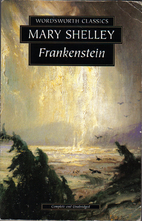
Frankenstein is a remarkably modern book that’s just shy of its bicentennial birthday. Often called the first science fiction novel, it’s a parable for how mastering technology (and the pursuit of knowledge and success that comes along with that) can ruin us if we don’t keep our goals in perspective. Mary Shelley manages to warn us to remember to keep things in balance—without ever coming across as anti-modern or anti-technology. (And she wrote this when she was a teenager—there’s your real Halloween scare.)
Sure, you may have been required to read Frankenstein in high school. You’ll get a lot more out of it when you read it as an adult, trust me. First of all, the structure of the narrative is totally bonkers—it should not work, but it does. I can tell you this without giving away any spoilers: One character is telling his story and another character’s story (and that second character is telling the story of some other characters) and it’s all wrapped up in the narration of yet another character, who is in the middle of writing letters about the whole story he’s hearing—along with his own story. It’s a nesting doll structure that any writer would be wary to imitate. The heavily mediated structure helps illustrate the isolation being experienced by most of the main characters, and at the same time, lends the story an authenticity—a feeling that this may really have happened.
Reading Frankenstein as an adult also allows the reader a lot more insight into what motivates the characters… as well as some skepticism about whether they’re really coming clean with each other. You’ll enjoy giving it a second (or a first) chance.
Frankenstein is available to you in many editions and from many avenues. (Here at the Nebraska Library Commission we even have it as one of our book club kits.) Two common editions are from 1818 and 1831—I’d recommend the 1818 edition myself. Because of the age of the text, it’s available in the public domain, and the Internet Archive has a few editions to choose from. You can also listen to a free audiobook from Librivox here and here, and those are only a couple of the audio versions they have available.
Happy Halloween… and remember, don’t go out there and create your own worst nightmare!
Shelley, Mary W, and Marilyn Butler. Frankenstein, Or, the Modern Prometheus: The 1818 Text. Oxford: Oxford University Press, 2008. Print.
 Is Your Library Ready for the Astronomical Event of the Decade?
Is Your Library Ready for the Astronomical Event of the Decade?
Star Net is presenting a series of webinars in preparation for the solar eclipse next year.
Next Webinar: Wednesday, October 19th, 2016 at 11:00 am MT, 12:00 CT, 1:00 ET
On August 21, 2017, we will be treated to the first total eclipse of the Sun visible in the continental U.S. in almost 40 years. The spectacular total eclipse will only be visible in a narrow band about 60 miles across, stretching diagonally across the country from a beach in Oregon to a beach in South Carolina. However, everyone in North America will see a partial solar eclipse, where a big “bite” will be taken out of the Sun.
This will be the first major U.S. eclipse of the Internet age, and most people will need clear reliable information on when and how to observe the eclipse of the Sun safely. Astronomers are hoping libraries will play a key role in getting this information out to their communities. Working with astronomy groups in their communities, they could also be a central place for safe observing.
Get an early start in preparing for this eclipse, how to explain it, how to observe it safely, and what role libraries can play in organizing and informing their communities.
Join us for a 45 minute webinar where you’ll get great information about the eclipse, and be able to ask questions about the role your library can play. Hosts: Dennis Schatz (NSTA, Pacific Science Center), and Andrew Fraknoi (Foothill College; co-author of a new book on eclipse education). Click here for an Eclipse FAQ sheet.
To register, please click here. Password is “star”.
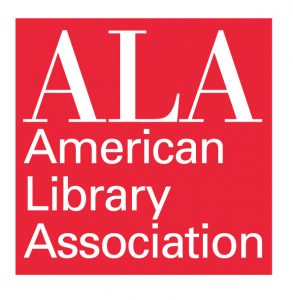 Every year, nearly $200 million in federal library funding is awarded to states by the Institute of Museum and Library Services (IMLS). IMLS can do that work, and gets the funding it needs, in no small measure because Congress passed and periodically “reauthorizes” the Museum and Library Services Act. It’s time for Congress to renew that important landmark legislation again and library champions in the Senate have just introduced a bill, S. 3391, to do exactly that.
Every year, nearly $200 million in federal library funding is awarded to states by the Institute of Museum and Library Services (IMLS). IMLS can do that work, and gets the funding it needs, in no small measure because Congress passed and periodically “reauthorizes” the Museum and Library Services Act. It’s time for Congress to renew that important landmark legislation again and library champions in the Senate have just introduced a bill, S. 3391, to do exactly that.
S. 3391 – Museum and Library Services Act of 2016
Synopsis of the bill:
S. 3391 will enhance IMLS’ collaborative efforts by expanding the number of federal agencies able to fully leverage the role of libraries and museums in supporting and meeting the needs of Americans.
FOR IMMEDIATE RELEASE
October 12, 2016
FOR MORE INFORMATION
Mary Jo Ryan
402-471-3434
800-307-2665
Gov. Ricketts Names Appointments to Nebraska Library Commission
Gov. Pete Ricketts recently appointed Charles (Chuck) Peek, of Kearney, and Sandra (Sandy) White, of Sidney, to three-year terms on the Nebraska Library Commission. Gov. Ricketts also reappointed Michael LaCroix, of Omaha, to a second three-year term.
A former member of the board for Kearney Public Library, Chuck Peek is an Emeritus Professor of English at University of Nebraska at Kearney (UNK). He served for some time as a board member and president of the Nebraska Center for the Book, and received its Mildred Bennett Award in 2011. Since retiring in 2008, he has published two books of poetry and one volume of homilies given at Red Cloud’s Grace Church for Cather events—and currently serves on the Willa Cather Foundation Board of Governors. Chuck teaches occasionally for Kearney’s Senior College, Lincoln’s OLLI, and the Bishop Kemper School for Ministry in Topeka.
Sandy White was a Nebraska educator for more than forty years. Before retiring, she served panhandle schools for several years as the Library-Media Services Director for Educational Service Units 13 and 14. She served on the board of the Western Library System (formerly known as the Panhandle Library System). She also served on the board, including a term as president, of the Nebraska School Library Association (formerly known as the Nebraska Educational Media Association). She currently serves on the board of the Sidney Public Library.
Michael LaCroix served as Director of the Reinert-Alumni Memorial Library at Creighton University and as interim dean of the University of Nebraska Omaha’s Dr. C.C. and Mabel L. Criss Library. He formerly served as library director at Greensboro College and Wingate University in North Carolina, and at Albright College in Pennsylvania. He is a member of the board of directors for United for Libraries, a division of the American Library Association (ALA), and previously served on the Nebraska State Advisory Council on Libraries—including a term as chair—and on the North Carolina State Advisory Council on Libraries. LaCroix was elected to the board of directors of ALA’s Association of College and Research Libraries and served as Nebraska’s representative to the Online Computer Library Center Member’s Council. Formerly the treasurer of the Nebraska Library Association (NLA), he chaired the NLA College and University section.
They join current Commissioners Molly Fisher (Lincoln), Susan Warneke (Norfolk), and Debby Whitehill Bloom (Omaha) serving on the Nebraska Library Commission—the policy-making body ensuring that the agency is fully responsible for the statewide promotion, development, and coordination of library programs and services.
As the state library agency, the Nebraska Library Commission is an advocate for the library and information needs of all Nebraskans. The mission of the Library Commission is statewide promotion, development, and coordination of library and information services, “bringing together people and information.”
###
The most up-to-date news releases from the Nebraska Library Commission are always available on the Library Commission Website, http://nlc.nebraska.gov/publications/newsreleases
October is National Reading Group Month so I am inviting you to mark the occasion by sharing your book club kits on our Book Club Wiki. Nebraska Book Clubs are very active and eagerly work to locate multiple copies of their selections each month. For the libraries that chose to share, this requires paying postage or arranging delivery of the books when they are requested. If you have a book club collection and would be willing to share with others in the state we can provide the password to you and we’ve included instructions on the book club wiki page to assist you . If you would prefer, we can list your books for you! If you are ready to get rid of any books club selections, we’d be happy to add them to our collection. We are grateful for the libraries that share their book club kits and have gifted extra copies to us; you have helped to grow our collection to well over 1,100 titles for all levels of readers. If you are interested and would like to request the password, please contact us at 800/307-2665 or nlc.ask@nebraska.gov

Join us for next week’s NCompass Live, “Circulating the Internet – How to Loan WiFi Hotspots”, on Wednesday, Oct. 12, 10:00-11:00 am Central Time.
Learn how the Norfolk (NE) Public Library started loaning out WiFi hotspots to patrons in August 2016. Library staff will share their inspiration for starting the program, how they worked through the logistics and policies needed, and what the public reaction has been to the new service.
Presenters: Jessica Chamberlain, Director; Judy Hilkemann, Systems Assistant/Reference Supervisor; and Mike Dittmer, Technology Specialist, Norfolk (NE) Public Library.
Upcoming NCompass Live events:
For more information, to register for NCompass Live, or to listen to recordings of past events, go to the NCompass Live webpage.
NCompass Live is broadcast live every Wednesday from 10am – 11am Central Time. Convert to your time zone on the Official U.S. Time website. The show is presented online using the GoToWebinar online meeting service. Before you attend a session, please see the NLC Online Sessions webpage for detailed information about GoToWebinar, including system requirements, firewall permissions, and equipment requirements for computer speakers and microphones.
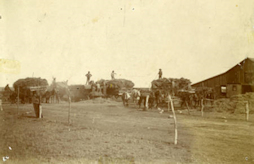 Fall is my favorite time of the year. I love the crisp morning air, the feel of a warm sweater, the tart taste of apple cider on my tongue. For some, however, fall is a sad time. The wheat has been harvested, the trees are bare, and winter is around the corner.
Fall is my favorite time of the year. I love the crisp morning air, the feel of a warm sweater, the tart taste of apple cider on my tongue. For some, however, fall is a sad time. The wheat has been harvested, the trees are bare, and winter is around the corner.
According to the song, “Nebraska in the Fall,” the leaves turn to “red and gold . . . . the flaming sumac flaunts her colors bold and 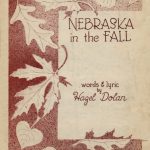 cottonwood and maple have turned to yellow gold!” Having moved to Lincoln in January, this will be my first Nebraska autumn. While I have experienced the cooler mornings, I have yet to see trees dripping with red and orange colored leaves as described by the song’s writer, Hazel Dolan of Louisville.
cottonwood and maple have turned to yellow gold!” Having moved to Lincoln in January, this will be my first Nebraska autumn. While I have experienced the cooler mornings, I have yet to see trees dripping with red and orange colored leaves as described by the song’s writer, Hazel Dolan of Louisville.
However, fall does not invoke images such as those described by Hazel Dolan for all people. In my experience, some see fall as a season of leafless trees and bleak landscapes, like the scene on this postcard of the Pavilion at Omaha’s River Park. 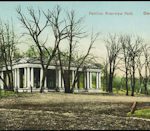 Regardless, many find a way to enjoy the season. This group from Lincoln’s Union College apparently found something to celebrate or at least a way to stay warm!
Regardless, many find a way to enjoy the season. This group from Lincoln’s Union College apparently found something to celebrate or at least a way to stay warm! 
While most of the fall-related images in Nebraska Memories are of leafless trees, there are many other pictures that capture the essence of autumn – crews harvesting hay and other crops, nature scenes and music scores.
Visit Nebraska Memories to search for or browse through many more historical images digitized from photographs, negatives, postcards, maps, lantern slides, books and other materials. Nebraska Memories is a cooperative project to digitize Nebraska-related historical and cultural heritage materials and make them available to researchers of all ages via the Internet. Nebraska Memories is brought to you by the Nebraska Library Commission. If your institution is interested in participating in Nebraska Memories, see http://nlc.nebraska.gov/nebraskamemories/participation.aspx for more information, Devra Dragos, Technology & Access Services Director
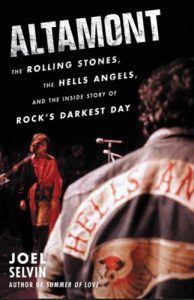 It would be a gross understatement to say that Joel Selvin’s Altamont provides a mere description of the events leading up to and during the Altamont music festival (December 6, 1969). The San Francisco music critic provides much deeper coverage, including the overall music culture at the time, the Woodstock festival, the Rolling Stones, the Grateful Dead, and the lives of musicians and managers that were involved in these and other music events in the late 1960’s. And the other major player at Altamont, the Hells Angels.
It would be a gross understatement to say that Joel Selvin’s Altamont provides a mere description of the events leading up to and during the Altamont music festival (December 6, 1969). The San Francisco music critic provides much deeper coverage, including the overall music culture at the time, the Woodstock festival, the Rolling Stones, the Grateful Dead, and the lives of musicians and managers that were involved in these and other music events in the late 1960’s. And the other major player at Altamont, the Hells Angels.
The organizers of the Altamont festival, which was plugged as “Woodstock West”, unfortunately learned very few of the lessons that came from Woodstock. Altamont was largely a project put together by the Rolling Stones and other assorted handlers that included the Grateful Dead, and was in the end a semi-functional disaster. The Rolling Stones hadn’t toured since 1966, partly due to travel restrictions because of drug charges, and were in a financial crisis so to speak. So in November of 1969 the Stones began touring the U.S., playing large sold-out arenas with ticket prices outside of the norm (and also subsequently skipping from town to town without paying their hotel and travel bills). Altamont was supposed to be the answer to media and fan criticism of the Stones’ high ticket prices, but there were a few other factors at play in their decision to engage in a large scale concert. For one, the Stones weren’t at Woodstock, so there was perhaps an effort for something similar to make their mark (think grand scale). Secondly, the concert, although free to those attending, was always about the money. Perhaps not for a band like the Grateful Dead, but definitely for the Stones. For instance, Selvin describes one of the contributors to the chaos of the event being the multiple changes of venue. At one point, the Sears Point Raceway (now Sonoma Raceway) was selected and theoretically would have been a much better choice for the event than Altamont (after the organizers failed to obtain a permit to hold the event at Golden Gate Park). However, the Sears Point owners requested cash up front and film distribution rights, and the Stones weren’t willing to give that up. In the long run, it would have been well worth it.
In addition to the Stones, the lineup for the Altamont concert included Santana, Jefferson Airplane, The Flying Burrito Brothers, Crosby, Stills, Nash & Young, and the Grateful Dead (although due to increased violence throughout the day of the event, the Dead decided not to play). With the last minute change in venue, one of the problems with the event was the fact that the stage could not be properly erected (and therefore lacked a natural barrier between the musicians and the mixture of LSD, amphetamines, and cheap wine that laced the crowd). The stage stood less than four feet high (compared with 15 feet at Woodstock). Added to the logistical difficulties were huge amount of traffic, inadequate roads, and the lack of other essentials such as food, water, and facilities (yes, those kinds of facilities). Finally (and perhaps most importantly), due to a distrust of the cops, at the suggestion of Jefferson Airplane, the Stones hired no security for the event other than paying the Hells Angels $500 worth of beer (on a truck with ice) in exchange for the Angels agreement to hang out in front and keep the spectators off the stage. And as we all know, the Hells Angels ain’t no cops (especially when they are spending the entire day and night drinking free ice cold beer). The scene at Altamont reeked of trouble from the start, as Selvin offers this depiction of Santana (the first band of the day) beginning to play:
“Santana drummer Michael Shrieve sensed the fog of evil as soon as he settled behind his kit and looked around. The stage felt claustrophobic and the audience packed up against it as tightly as they could. He saw one particularly menacing Hells Angel called Animal, who was wearing a coyote skin as a headdress—the flattened, dried-out head of the long-dead animal hanging grotesquely over his forehead. Something felt wrong from the start. … The Angels waded into the crowd flailing pool cues another half dozen times during the band’s forth-five-minute set, chasing down a hippie photographer who refused to give up his film, smacking around some freaked-out kid trying to escape by climbing onto the stage.”
All said and done, the casualties at Altamont included four deaths, numerous beatings at the hands of the Angels, and general bad vibes. Selvin paints an intriguing and engaging portrait of the events leading up to and during Altamont, as well as the major players. If you have any interest in the historical events of the late 1960’s, the Rolling Stones, or the rock musicians from San Francisco scene during that time, this is an easy and interesting read.
Postcard of the Library of William Jennings Bryan at Fairview, Lincoln, Nebraska. Approximate date is early 1900’s.
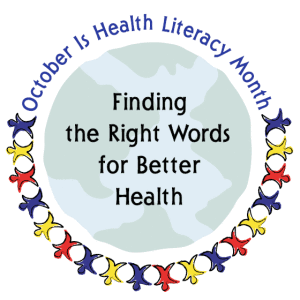 Discover ways your library can encourage health literacy in your community
Discover ways your library can encourage health literacy in your communityHealth literacy is bigger than any one person, profession or program. It takes all of us working together to improve health understanding. That includes those who are working at, overseeing and visiting public libraries.
I have been focused on health literacy for many years, bringing to this field my experience as a clinician, training as an educator and perspective as a patient. From all these perspectives it is clear there is much work yet to do when it comes to clearly communicating about health. Your library can help. Here are some ways:
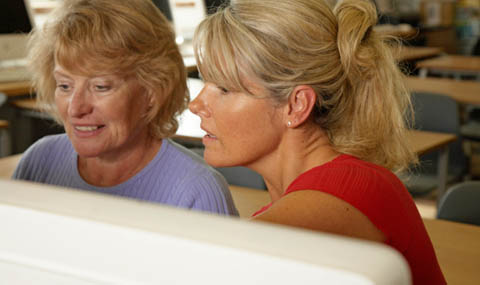
Health Literacy Month is a time for organizations and individuals to promote the importance of understandable health information. This annual, worldwide, awareness-raising event has been going strong ever since Helen Osborne founded it in 1999. Health Literacy Month is now brought to you in collaboration with the Institute for Healthcare Advancement (IHA).
To learn more and for more health literacy resources for your library, go to www.healthliteracymonth.org.
Recognized as an expert in health literacy, Helen Osborne M.Ed., OTR/L, helps others communicate health information in ways that patients, caregivers and the public can understand. Osborne is president of Health Literacy Consulting, founder of Health Literacy Month and host of the podcast series “Health Literacy Out Loud.” Osborne is also author of the award-winning book Health Literacy from A to Z: Practical Ways to Communicate Your Health Message, Second Edition. To learn more about her work and background, go to www.healthliteracy.com.
Reprinted from WebJunction